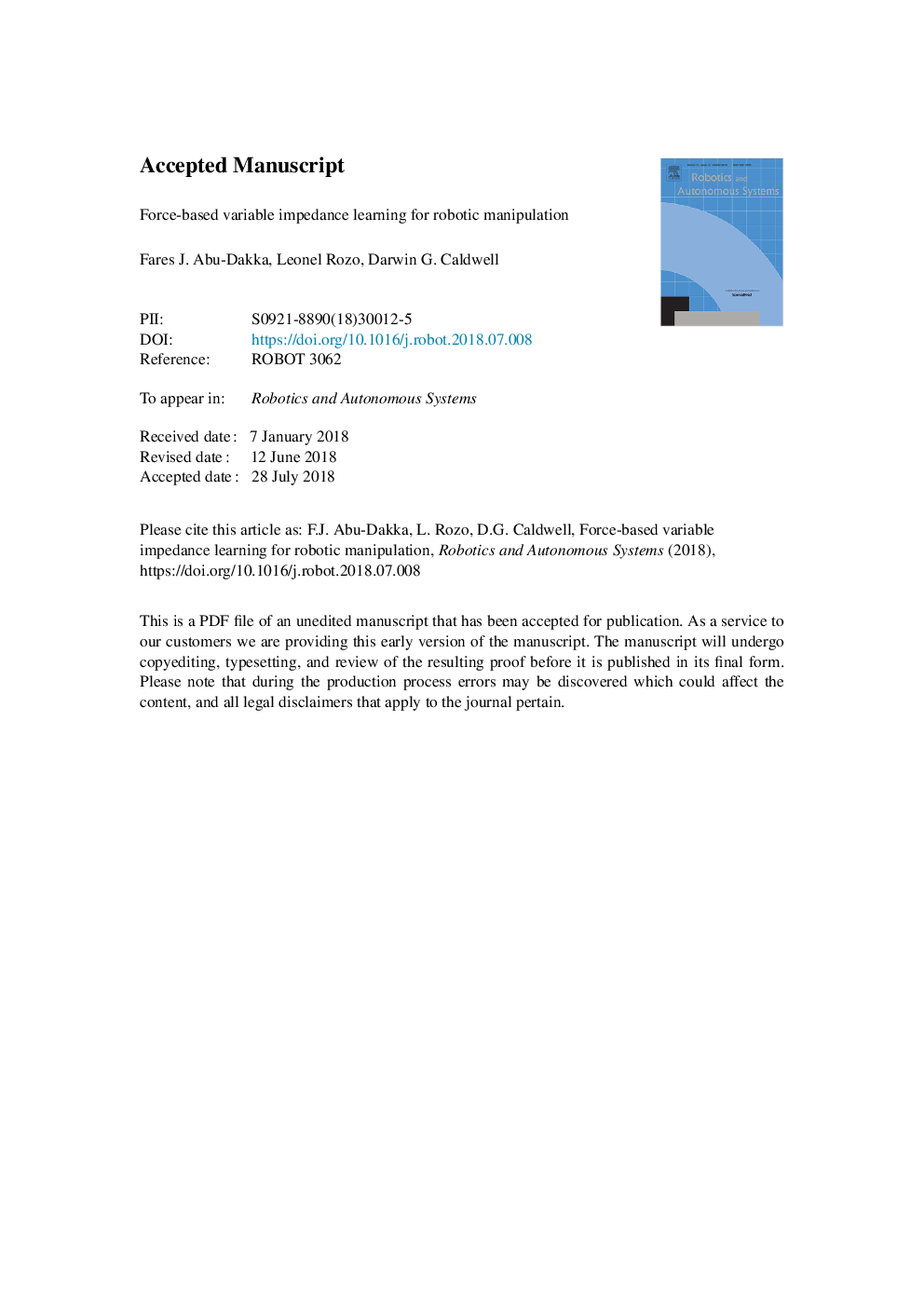| Article ID | Journal | Published Year | Pages | File Type |
|---|---|---|---|---|
| 10145971 | Robotics and Autonomous Systems | 2018 | 16 Pages |
Abstract
In order for robots to successfully carry out manipulation tasks, they require to exploit contact forces and variable impedance control. The conditions of such type of robotic tasks may significantly vary in dynamic environments, which demand robots to be endowed with adaptation capabilities. This can be achieved through learning methods that allow the robot not only to model a manipulation task but also to adapt to unseen situations. In this context, this paper proposes a learning-from-demonstration framework that integrates force sensing and variable impedance control to learn force-based variable stiffness skills. The proposed approach estimates full stiffness matrices from human demonstrations, which are then used along with the sensed forces to encode a probabilistic model of the task. This model is used to retrieve a time-varying stiffness profile that allows the robot to satisfactorily react to new task conditions. The proposed framework evaluates two different stiffness representations: Cholesky decomposition and a Riemannian manifold approach. We validate the proposed framework in simulation using 2D and 7D systems and a couple of real scenarios.
Related Topics
Physical Sciences and Engineering
Computer Science
Artificial Intelligence
Authors
Fares J. Abu-Dakka, Leonel Rozo, Darwin G. Caldwell,
